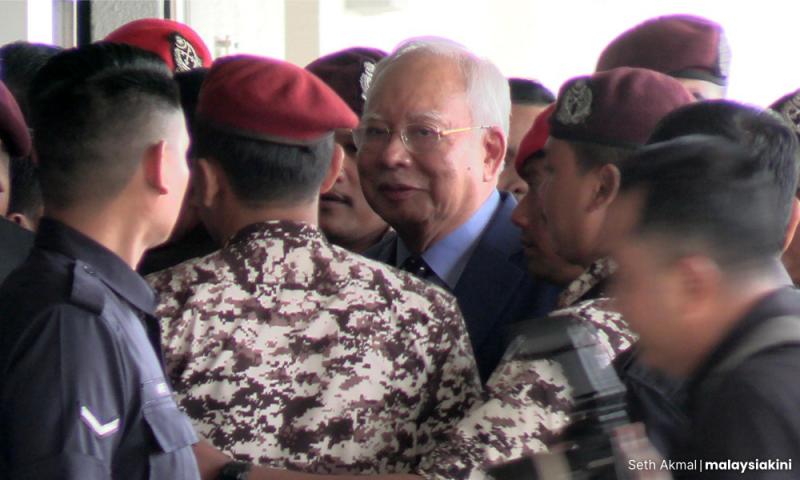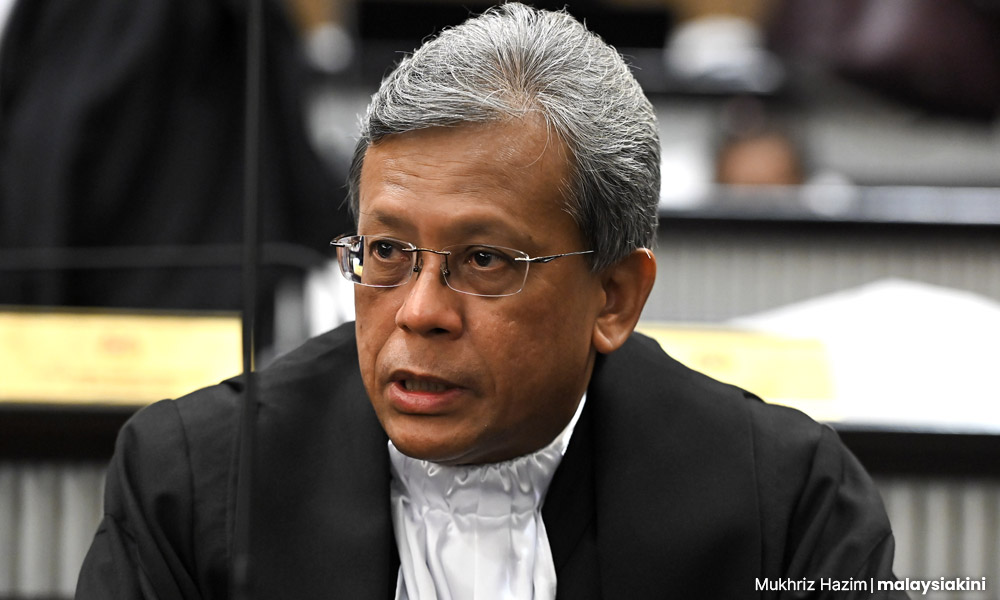
Complete evidence, not sentiment, for Najib to clear himself - ex-AG
Published: Nov 1, 2024 12:56 PM
For ex-premier Najib Abdul Razak to redeem himself in court, it all hinges on comprehensive evidence, not sentiment, according to former attorney-general Abu Talib Othman.
He said Najib still has an opportunity to clear himself of charges of misappropriating 1MDB funds when he gives his sworn testimony on Dec 2, but this depends on whether the evidence he presented is genuine or merely fabrication.
“This is Najib’s chance to provide his testimony and defend himself if he believes there are facts that can support his position.
“Further action will depend on the strength of the defence’s evidence, which must be presented convincingly,” Utusan Malaysia quoted him saying.
He added that the evidence provided must be comprehensive to refute the prosecution’s claims.
“For the court, priority remains on the evidence, not sentiment,” he said.
Talib was the attorney-general from 1980 to 1993.
Defence called
On Wednesday, High Court judge Collin Lawrence Sequerah ordered Najib to enter his defence in the 1MDB case.

Judge Collin Lawrence Sequerah
Among others, Sequerah ruled that Najib had a responsibility to take reasonable steps to ascertain whether the US$681 million deposited into his account - and later returned US$620 million - was from unlawful activities or otherwise.
“Under all the circumstances, I find that the accused was also ‘wilfully blind’ concerning his failure to inquire into the origin of these funds when the circumstances were such that he ought to have done so,” the judge opined while ruling that prosecution had proven intent of crime for the money laundering charges.
On the matter of hearsay evidence as alleged by the defence, Sequerah ruled that the communications made between the prosecution witnesses and the persons who cannot be found - which includes Low Taek Jho (Jho Low) - were made during the course of their ordinary business, and hence fell under the exception to the hearsay rule in the Evidence Act 1950.
Read the full summary of judgment here.
Among others, Sequerah ruled that Najib had a responsibility to take reasonable steps to ascertain whether the US$681 million deposited into his account - and later returned US$620 million - was from unlawful activities or otherwise.
“Under all the circumstances, I find that the accused was also ‘wilfully blind’ concerning his failure to inquire into the origin of these funds when the circumstances were such that he ought to have done so,” the judge opined while ruling that prosecution had proven intent of crime for the money laundering charges.
On the matter of hearsay evidence as alleged by the defence, Sequerah ruled that the communications made between the prosecution witnesses and the persons who cannot be found - which includes Low Taek Jho (Jho Low) - were made during the course of their ordinary business, and hence fell under the exception to the hearsay rule in the Evidence Act 1950.
Read the full summary of judgment here.
No comments:
Post a Comment